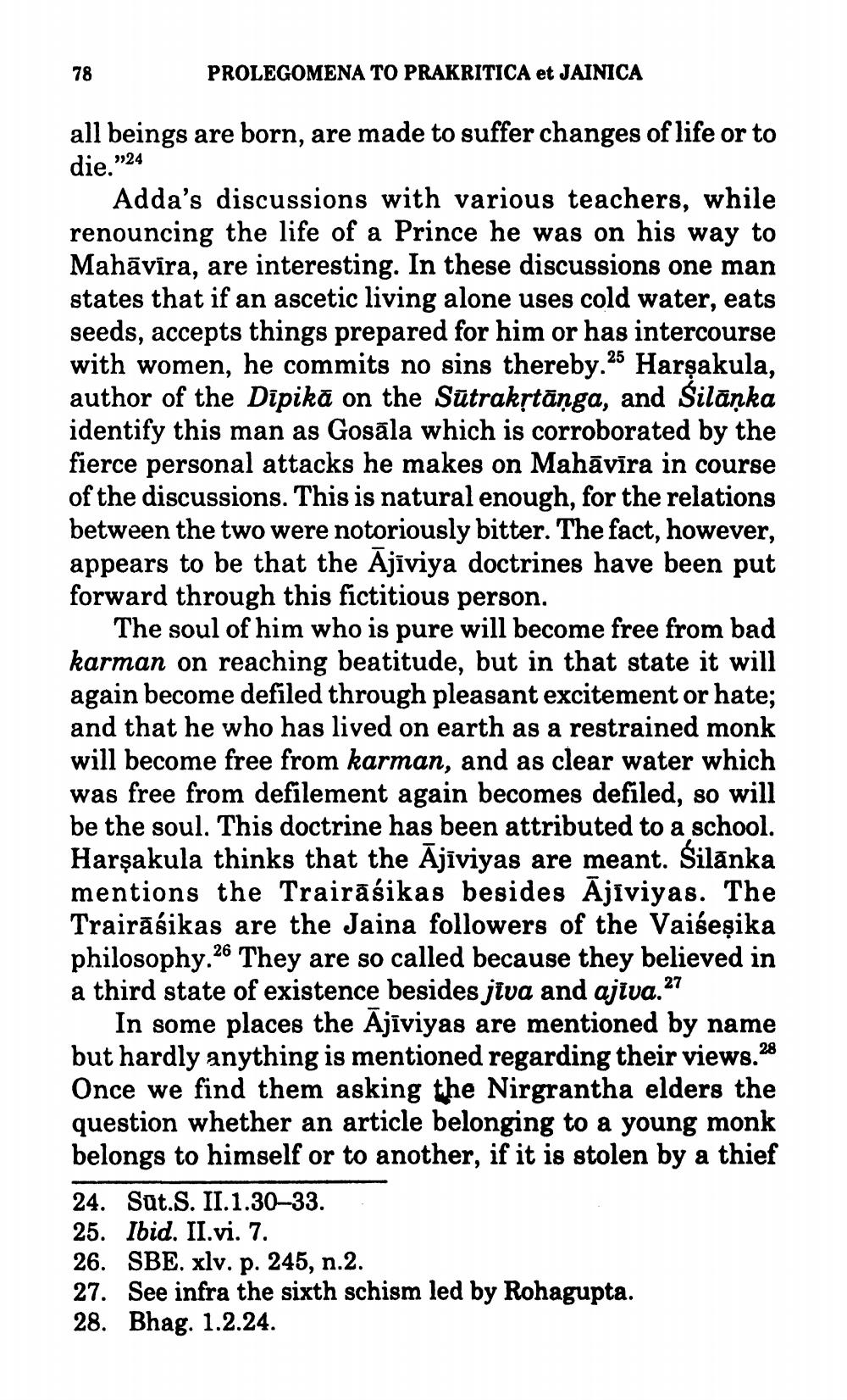________________
78
PROLEGOMENA TO PRAKRITICA et JAINICA
all beings are born, are made to suffer changes of life or to
die."24
Adda's discussions with various teachers, while renouncing the life of a Prince he was on his way to Mahāvīra, are interesting. In these discussions one man states that if an ascetic living alone uses cold water, eats seeds, accepts things prepared for him or has intercourse with women, he commits no sins thereby.25 Harsakula, author of the Dipikā on the Sūtrakstānga, and Silāņka identify this man as Gosāla which is corroborated by the fierce personal attacks he makes on Mahāvīra in course of the discussions. This is natural enough, for the relations between the two were notoriously bitter. The fact, however, appears to be that the Ajīviya doctrines have been put forward through this fictitious person.
The soul of him who is pure will become free from bad karman on reaching beatitude, but in that state it will again become defiled through pleasant excitement or hate; and that he who has lived on earth as a restrained monk will become free from karman, and as clear water which was free from defilement again becomes defiled, so will be the soul. This doctrine has been attributed to a school. Harşakula thinks that the Ajiviyas are meant. Silanka mentions the Trairāśikas besides Ajiviyas. The Trairāśikas are the Jaina followers of the Vaiseşika philosophy.26 They are so called because they believed in a third state of existence besides jiva and ajiva. 27
In some places the Ajīviyas are mentioned by name but hardly anything is mentioned regarding their views.28 Once we find them asking the Nirgrantha elders the question whether an article belonging to a young monk belongs to himself or to another, if it is stolen by a thief 24. Sat.S. II.1.30–33. 25. Ibid. II.vi. 7. 26. SBE. xlv. p. 245, n.2. 27. See infra the sixth schism led by Rohagupta. 28. Bhag. 1.2.24.




